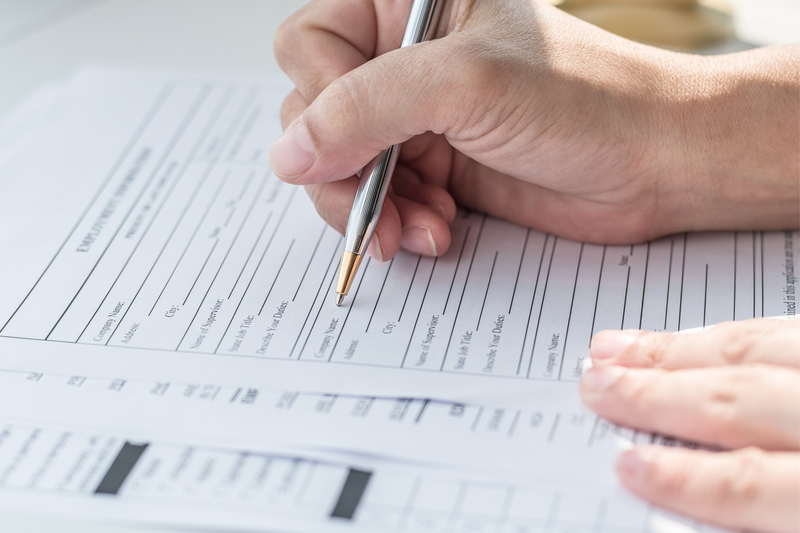Empowering the Next Generation to Recycle: Building a Sustainable Future
In a world facing environmental challenges from overflowing landfills to depleted natural resources, empowering the next generation to recycle is more than a catchphrase--it's a crucial strategy for creating a greener, healthier planet. Teaching young people to appreciate, understand, and actively participate in recycling can have a lasting impact that extends well into the future. This guide explores the most effective ways to inspire young minds to embrace recycling, the benefits of youth involvement, and practical strategies for families, schools, and communities.

Why Focusing on Youth Recycling Engagement Matters
Empowering future generations to recycle is a key factor for driving sustainable change. Unlike adults, who may already have ingrained habits, children and teens are more receptive to learning new concepts and adopting eco-friendly routines. Here's why targeting youth is important:
- Long-term Impact: Young people shape not only their own behaviors but also influence their peers, families, and future generations.
- Habits Form Early: Positive recycling habits developed during childhood tend to last into adulthood.
- Creative Problem Solvers: Kids often bring fresh ideas and enthusiasm to environmental challenges, sparking innovative solutions.
- Amplified Community Influence: Youth-led recycling initiatives can be highly visible, motivating entire communities to participate.
Key Benefits of Youth Recycling Involvement
- Reduced Waste: Increased recycling rates lead to less landfill overflow and decreased pollution.
- Resource Conservation: Recycling helps preserve raw materials, water, and energy for future generations.
- Educational Value: Students acquire valuable knowledge about the environment, science, and civic responsibility.
- Community Building: Collaborative recycling efforts foster teamwork and pride in local communities.
- Global Citizenship: Learning about recycling teaches respect for the planet and fellow humans worldwide.
Understanding the Barriers: Why Aren't More Young People Recycling?
Despite increased awareness, many young people still face obstacles to consistent recycling. Identifying these barriers is the first step towards empowering youth to embrace recycling as a way of life.
- Lack of Understanding: Many children--and even adults--don't fully comprehend what can or cannot be recycled.
- Inconvenience: An absence of recycling bins at home, school, or public areas hinders participation.
- Insufficient Motivation: Recycling may not seem urgent or important in the face of other interests and obligations.
- Peer Pressure: In some social circles, recycling may be seen as uncool or unnecessary.
- Limited Access: Not all schools or communities have effective recycling programs in place.
Overcoming the Obstacles
Empowering the next generation to recycle means thinking creatively about how to spark genuine interest and engagement. Below are actionable strategies to overcome common recycling barriers among youth.
Educating the Next Generation: Turning Knowledge Into Action
1. Start Young: Early Education Matters
Children are far more likely to embrace recycling when it's introduced early in life. Preschool and elementary school are ideal stages to teach the basics in fun, engaging ways.
- Storytime and Games: Books, songs, and interactive activities make learning about recycling enjoyable and memorable.
- Sorting Games: Use real or toy items to practice sorting "recyclables," "trash," and "compost" at home or in the classroom.
- Field Trips: Visits to recycling centers or landfills offer tangible lessons about waste management.
2. Integrate Recycling into School Curriculum
Formal education is a powerful tool for instilling recycling knowledge. Schools can:
- Incorporate Recycling into Science and Social Studies Lessons: Explore the environmental, economic, and social impacts of waste.
- Student-Led Recycling Programs: Establish "Green Teams" where students help monitor and promote recycling efforts throughout the school.
- Hands-on Projects: Encourage creative reuse of materials--like art projects made from recycled items.
3. Use Modern Media and Technology
Today's youth are digital natives, so reaching them means leveraging their favorite platforms:
- Educational Apps: Interactive recycling games and quizzes reinforce eco-friendly habits.
- Social Media Campaigns: Inspire kids and teens with fun recycling challenges--using hashtags, selfies, and videos to celebrate progress.
- YouTube Tutorials: Step-by-step guides on recycling or upcycling are both educational and entertaining.
Involving Families: Bringing Recycling Home
Children are deeply influenced by what happens at home. Empowering the next generation to recycle starts with families making recycling a priority.
Practical Steps for Parents and Guardians
- Lead by Example: Demonstrate consistent efforts to recycle whenever possible. Kids mimic adult behaviors.
- Make Recycling Fun: Turn recycling into a game--compete to see who can collect the most cans or make sorting a timed challenge.
- Create a Home Recycling Center: Designate clear, labeled bins for paper, plastic, glass, and metals. Let kids help decorate or organize the area.
Top Tips for Home Recycling
- Learn Local Guidelines: Every town has different recycling rules. Review them with your children so there's no confusion about what goes where.
- Reduce Before Recycling: Talk about ways to use less in the first place--like bringing reusable bags to the store or choosing products with less packaging.
- Compromise, Don't Criticize: Encourage progress, not perfection. Celebrate small wins to maintain enthusiasm.
Community Engagement: Creating a Recycling Culture
Beyond families and schools, neighborhoods and community organizations play a significant role in empowering youth to recycle.
Community-Based Recycling Initiatives
- Recycling Drives and Competitions: Organize neighborhood or city-wide recycling challenges with prizes for top collectors.
- Public Recycling Stations: Ensure accessible, clearly marked bins in parks, sports facilities, and event spaces.
- Volunteer Opportunities: Local cleanups, educational workshops, and advocacy campaigns offer hands-on engagement for young people.
- Partnering with Local Businesses: Encourage shops, cafes, and event venues to participate in recycling and promote youth-led projects.
Empowering Youth Voices
- Youth Advisory Councils: Give young people a platform to shape local recycling efforts or policy decisions.
- Peer Mentorship Programs: Pair older students with younger ones to teach, inspire, and lead by example.
- Showcase Success Stories: Highlight young recycling champions in local newspapers, newsletters, or social media.
Harnessing the Power of Innovation and Creativity
The next generation often brings a fresh, creative approach to recycling that adults may overlook. Foster innovation by:
Encouraging Upcycling and Creative Reuse
- Maker Spaces: Provide areas where kids can build and create using old materials (cardboard, bottles, electronics).
- Art from Scrap: Host art shows or fairs that feature only recycled or upcycled creations.
- Invention Contests: Challenge youth to design products that help solve recycling problems--a robot that sorts plastics, for example.
Supporting Environmental Entrepreneurship
- Start a Small Youth Business: Help kids launch ventures that collect recyclables, sell upcycled crafts, or raise awareness.
- Collaborate with Local Startups: Encourage youth participation or internships in companies focused on environmental innovation.
Measuring Impact and Celebrating Success
Tracking progress is essential to maintain momentum and enthusiasm. Here's how to empower young recyclers with regular feedback and incentives:
- Set Achievable Goals: Work together to set weekly or monthly recycling targets--by weight, volume, or participation.
- Visual Trackers: Use charts, graphs, or apps to see how much waste is being diverted from landfills.
- Recognition and Rewards: Small celebrations, certificates, or eco-friendly prizes can provide strong motivation for both individuals and teams.
- Share Results: Post updates on school boards, community newsletters, and social media.
Building a Legacy: The Lifelong Value of Recycling Education
Empowering the next generation to recycle is not an isolated activity--it's a continuous investment in our planet's health and the well-being of all communities. When young people embrace the principles of recycling, reducing, and reusing, they grow into adults who naturally adopt sustainable habits and inspire others to do the same.
- Future Leaders and Policy Makers: Today's children will be tomorrow's environmental advocates, legislators, and innovators.
- Ripple Effect: Recycling education has the power to expand outward, ultimately reaching tens of thousands of people through word-of-mouth and leadership.
- Adaptive Mindsets: Youth equipped with environmental literacy are better prepared to respond to emerging challenges--from plastic pollution to climate change.

Getting Started: Steps to Empower Young People to Recycle Today
If you're ready to inspire recycling in the next generation, here's a quick action plan:
- Talk about Recycling: Open conversations about why recycling matters and how everyone can participate.
- Model Good Behavior: Kids follow what adults do. Make sure your own habits align with your message.
- Provide the Right Tools: Make recycling easy, accessible, and fun everywhere kids spend time.
- Celebrate Successes: Highlight achievements--no matter how small--to keep young recyclers motivated.
- Stay Informed: Recycling guidelines change. Keep up-to-date and share new information with youth.
Conclusion: A Greener Tomorrow Starts Today
Empowering the next generation to recycle is a crucial step towards a cleaner, more sustainable world. By investing in the education, resources, and experiences of today's youth, we lay a foundation for responsible environmental stewardship that lasts a lifetime. Encourage kids to take the lead, celebrate creativity, and reinforce recycling as a proud, collective commitment. With the passion and involvement of young people, the world can move closer to a future where recycling is second nature for all.
Together, let's inspire, educate, and empower the next generation to recycle--because their actions today will shape the planet for generations to come.